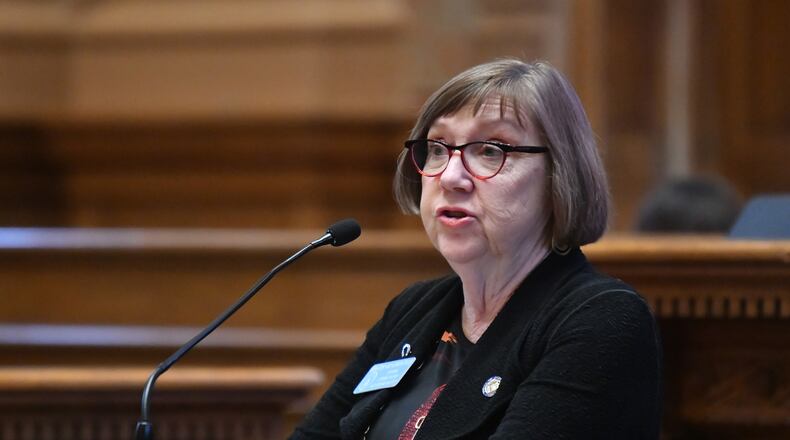State lawmakers introduced a proposal that would ban county superior court clerks and probate judges from pocketing passport application fees as personal income.
State Sen. Kay Kirkpatrick, R-Marietta, introduced a bill to end the controversial practice three months after The Atlanta Journal-Constitution reported that Cobb County Superior Court Clerk Connie Taylor pocketed more than $425,000 in passport fees in 2021 and 2022.
If approved, the bill would require that the fees be split between the county’s general fund and the clerk’s office, to offset expenses. Counties would have the option to adjust the split through an agreement.
The bill will have to be approved by both houses before becoming law and, so far, it seems to have broad support.
Clerks are elected constitutional officers who oversee record-keeping for the superior court, including real estate records. Superior court clerks that process passport applications are allowed under federal law to take the $35 fee as personal income, along with their salaries, if state law also allows it. Georgia law currently does.
Some opt to share the funds with the county government; others don’t.
The AJC reported last year that Taylor kept all of the passport fees for herself, on top of her $170,000 annual salary. The fees Taylor kept included expedited shipping fees.
Taylor’s office is now under investigation by the Georgia Bureau of Investigation after a clerk’s office employee-turned-whistleblower said Taylor ordered her to delete records related to the fees, instead of handing them over to the AJC which requested them under the Georgia Open Records Act.
Kirkpatrick, who lives in Cobb County, said the recent news coverage brought the issue to light. But the issue is not limited to Cobb. She listed off Gwinnett, DeKalb and Fulton counties, where the court clerks have also made thousands in additional compensation.
“If counties need to supplement the clerks’ income, there are other ways to do it,” Kirkpatrick said to the committee. “Just because something is legal, doesn’t make it right.”
Todd Edwards is the deputy director of governmental affairs for the Association of County Commissioners of Georgia’s legislative advocacy team. He partnered with Kirkpatrick to draft the bill, which also calls for more transparency through disclosure reports.
He said the bill is not intended to stop clerks from performing the service altogether, but that the personal compensation piece should be addressed.
“This is a public service. It’s valuable to the public. We just would hope that y’all would address it somehow on how this money is being kept as compensation,” Edwards said.
But DeKalb Superior Court Clerk Debra DeBerry predicted most clerks will opt out of providing the service if the compensation goes away.
“It is additional work, and it’s not part of our constitutional duty,” DeBerry said.
Tiana Garner, Gwinnett’s superior court clerk, added: “It’s a supplement that’s personal income for putting my name out there and accepting additional responsibility and liability.”
About the Author
Keep Reading
The Latest
Featured


